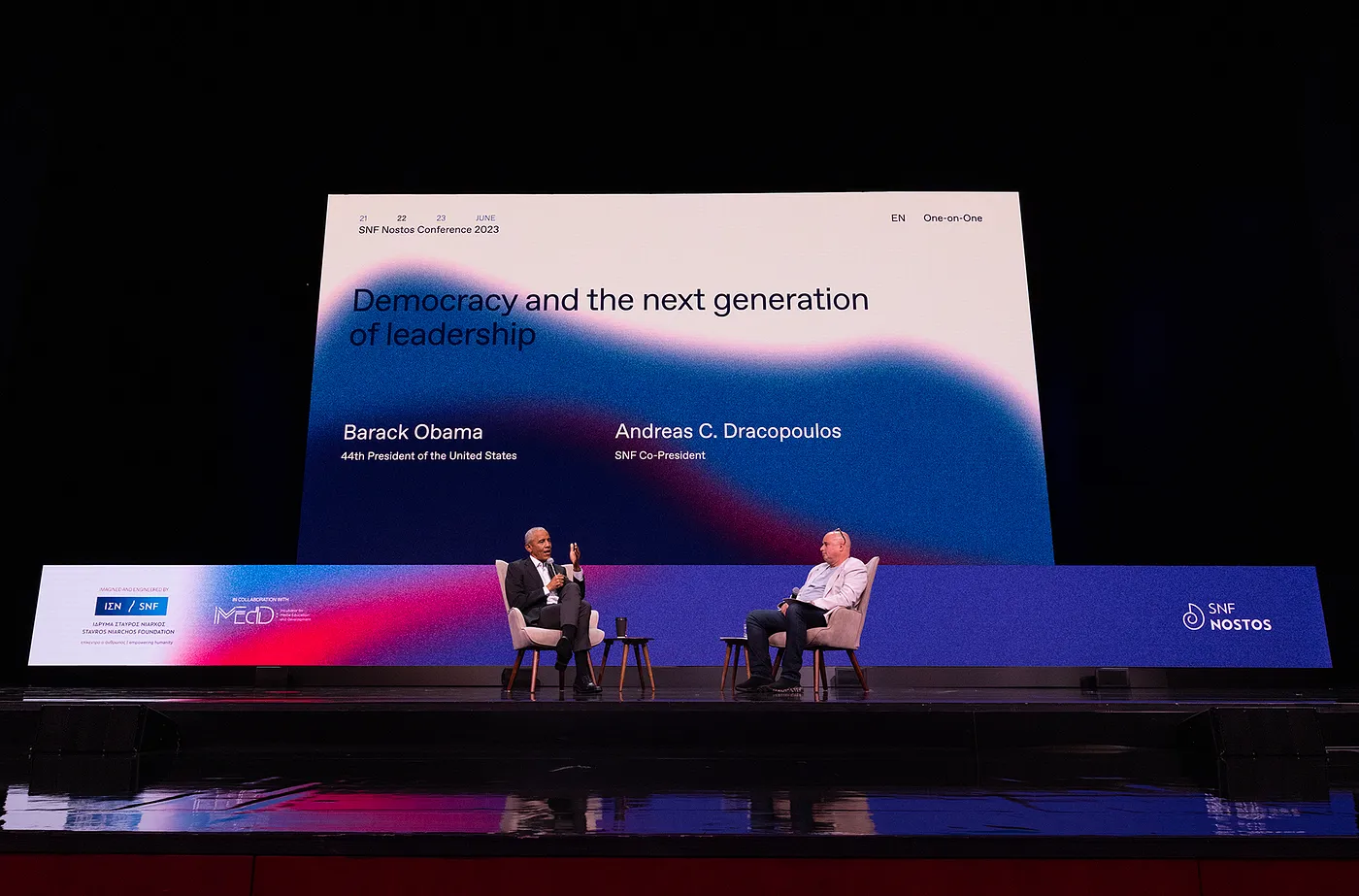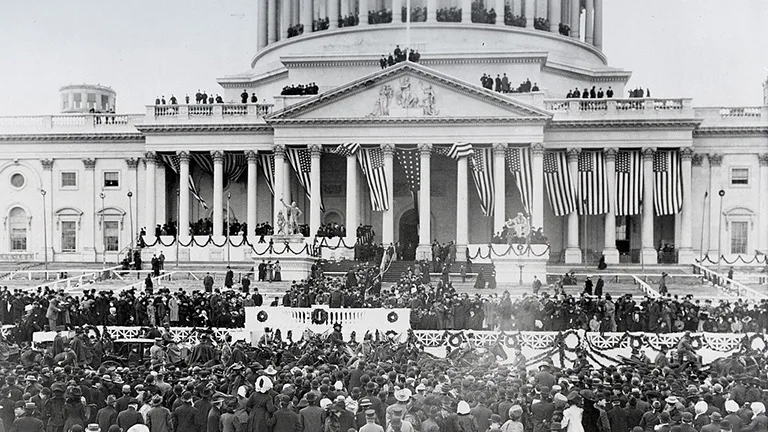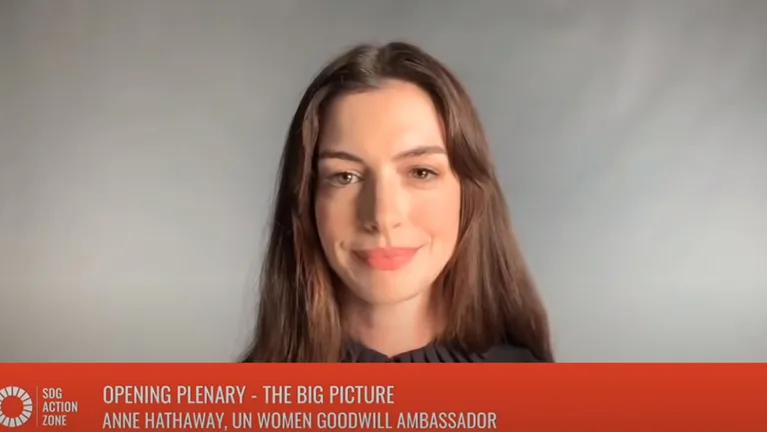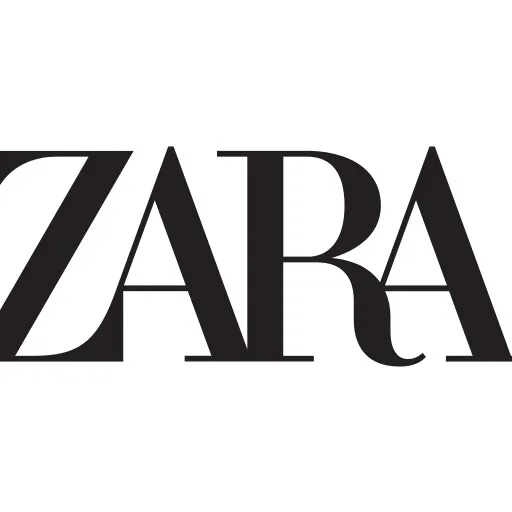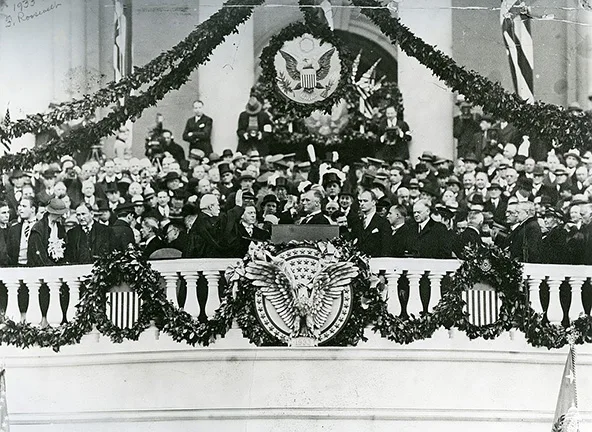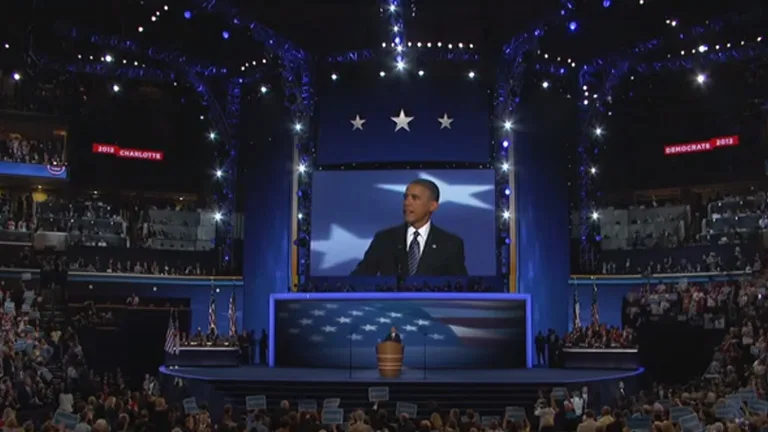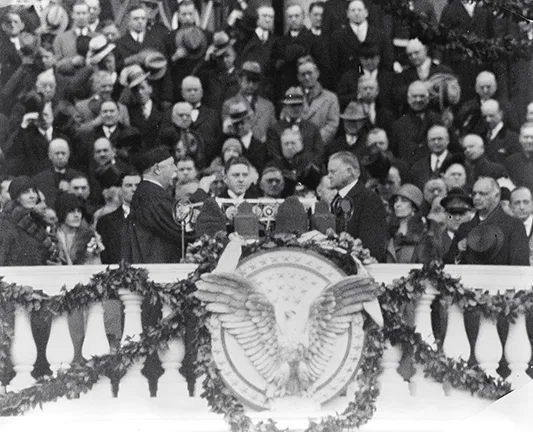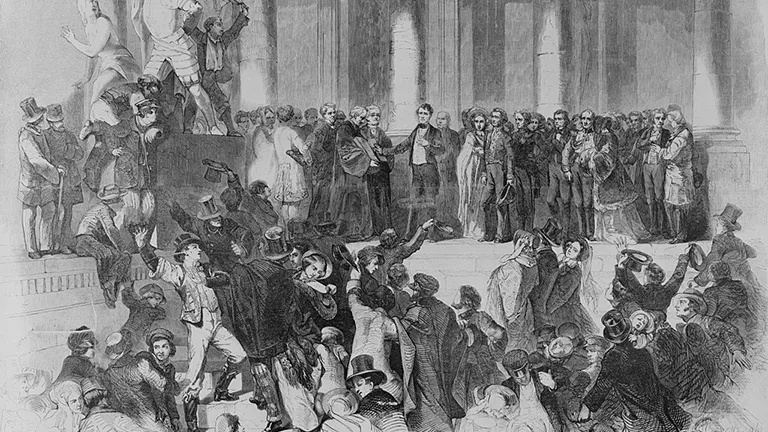Obama’s remarks as delivered at the SNF Nostos Conference in Athens, Greece.
Jun 22, 2023
Andreas Dracopoulos: President Obama, you have made clear the importance of strengthening Democracy, signaling the vital importance of elevating this issue. From your speech at the Copenhagen Democracy Summit last June to your Foundation hosting its first ever Democracy Forum last November in New York. Now here in Athens, where so many of the fundamental notions of democracy were born, I’d like to understand how you’re thinking of this kind of moment and what is most urgently needed.
President Obama: Well, first of all, I want to thank Andreas and SNF, who have been extraordinary partners for us. You know, your commitment to doing good here in Greece and around the world is extraordinary. And you’ve been and continue to be a great partner in our efforts. In fact, thanks to SNF’s participation, we’re going to be able to create a Democracy Hub at the Presidential Center that we’re building in Chicago. So everybody is welcome to visit, although you should probably not come in January or February, because I’m not sure Greek blood can handle that much cold.
But you know there’s a reason I gave my last official speech here in Athens. Because when I think about what motivated me to get into public service, it was the inspiration I had drawn from movements around the world in which ordinary people insisted that they should have a say in how they were governed. And that, if we committed to forms of self-government that recognized the worth and the dignity of all people, that we could overcome poverty and discrimination and conflict. And that idea began here. Imperfectly, just as the United States Constitution and the Declaration of Independence was imperfect, it gave birth to this idea that each person has value and should have some say in how their lives proceed, and how their communities are built, and the rules that govern all of us.
And, you know, I think that one of the reasons this conversation is timely is because right now, we’re going through a contest of ideas. We’ve seen, whether it’s in the illegal invasion of Ukraine taking place, in the rollback of freedoms in many parts of the world. Elections that involved participation during Election Day, but underneath are illiberal democracies. What we’ve seen is the basic notion of democracy challenged. And there are a lot of reasons for that.
But, what I am convinced of and the work that I’m doing now post-presidency is that the spirit that was born here in Athens that continues to motivate and inspire people around the world, and if we can give them voice and get them a seat at the table, then not only can we strengthen democracy, but we can also solve a lot of the problems that that we face.
But it’s going to be difficult. It’s difficult here in Europe. It’s difficult in the United States. It’s difficult around the world. And one of the reasons that I’ve been focusing on young people, the Obama Foundation essentially brings together young leaders from every continent to discuss how they can work together on climate change, on health care, on economic opportunity. What I’ve discovered is, that young people, they still have faith in democracy. They still have faith in freedom and self-governance. But they’ve been disappointed in existing institutions, big politics, big media, big business. And they’re now reshaping and reforming those institutions so that they can operate effectively in today’s environment. And I am extremely hopeful because of them. And I know that you had some young leaders here earlier today in this foundation. I think that it’s the task of those of us with gray hair or no hair at all at. Our biggest job, particularly those of us who have been given a platform and resources, our biggest task right now is to encourage that young leadership and pass the baton and pass the torch so that they can begin what is going to be, I think, a very challenging period.
It’s challenging because of environmental challenges around climate change. It’s challenging because what we’ve seen in globalization is greater integration of the world economy, but it’s also produced extraordinary inequality, inequality that is being accelerated in many cases by new technologies. We have, I think here in Greece, obviously, but across Europe and in the United States, issues of migration, the fact that there are many countries where people have difficulty supporting themselves, understandably, they want a better life for themselves and their children. But that puts strains on our social systems and becomes an easy target I think for people’s fears and frustrations.
All these things are contributing to, I think, big challenges. But the good news is I think there are young people that are out there ready to meet them, and that’s going to be the project that I continue to focus on, the Foundation focuses on. That’s why we’re so glad that SNF is a partner in that process.
Andreas Dracopoulos: Thank you. And we’re honored to be part of this effort. In Copenhagen, you talked about the importance of a shared culture of democracy. Against that backdrop, what is your view of how we should think about freedom right now?
And by the way, back, I mean, more than eight years ago, FDR gave a famous State of the Union address in January of ’41, was ten months before the U.S. joined the war. And he defined, the speech was about the four freedoms which he defined as a freedom of speech, freedom of worship, freedom from want, and freedom from fear. And sometimes it seems as if the values of individual freedom and representative democracy can be at odds. And I think this is a very important part. How willing/tolerant should we all be to listen, discuss, engage, do with others who might be interpreting freedoms and values in a different way than we do? How do we create the space to have these difficult discussions?
President Obama: One of the central ideas behind democracy is we agree to a set of rules, and within those rules we have competition. And what we say is we’re going to debate, we’re going to argue, we’re going to have differences, but we’re also going to have something called forbearance. We’re going to recognize not everybody is going to agree with us and we’ll compete but, at the end of the day, there will be elections and the winners will try to advance their platform. The losers will, and I’ve lost occasionally, it doesn’t feel good. But we go back, we retool, we sharpen our message. There’s cooperation within the competition. That sense that we can agree without being disagreeable, without demonizing the other side, that’s central to the Democratic idea.
I’ve often said that what makes the United States exceptional is actually not the size of our military or the size of our economy, although those things are remarkable achievements. But what makes us unique is we’re one of the few big countries that is also multiracial, multiethnic, multi-religious. And so far at least, we’ve been able to manage this experiment that says we can get along and we can live together. Now, we’ve done that imperfectly. There’s been a history of slavery and Jim Crow and discrimination against various ethnic groups. But we represent people from every corner of the globe and the basic central idea of America, not always the reality, but the central idea of America is somehow we can all find a place and live together and work together and respect each other.
And that’s why, if you go to my hometown of Chicago, we’ve got Greektown and there are a lot of Greeks. But you’ve also got, you can find a little Warsaw and a little India and there are enclaves of people everywhere looking for a better life. Now, that’s hard, though. Democracy is a hard form of government. Because it means that you have to live side by side with somebody who has not just different ideas from you, in some cases entirely, an entirely oppositional worldview.
But what I think is dangerous now is that we’re seeing, particularly in some of the far right populist parties in Europe. I would argue, also in the United States. The sense that we will do anything to win and we will break down the norms, the barriers, we’ll manipulate voting rules. We will not observe traditions that have kept the parties from fighting to the death. And that kind of approach, I think, is dangerous. Now, what I’ve learned from my work as a community organizer before I was a politician, what I’ve learned from the young people who are working in very difficult circumstances is, we have to relearn how to listen to each other. And to understand their stories and to find connections. And put ourselves in other people’s shoes.
President Obama: And I want to congratulate Sofia on the extraordinary work that she is doing right now with the HOME Project. She’s somebody who went through our program. But the essential insight of her program is that those children on the beach that she rescued, they are just like our children. And we have to recognize their worth and value and that their parents who fear for their lives and want the best for them, just like we do.
That kind of empathy, that kind of fellow feeling, that to me at least, is what is the basis for any well-functioning society. And it’s easier to do when we all look alike, and we all have similar names and we all speak the same language. It’s harder to do across borders. It’s harder to do when people are coming in for the first time. But that, I think, is going to be the only way that we can actually survive and solve some of these big problems that we face.
You mentioned the word freedom. And a hallmark of democracy is freedom of speech, freedom of religion, freedom of assembly. I, and all of us, I think, who grew up when the Cold War was still active, understood that authoritarianism, totalitarianism, what was happening behind the Iron Curtain, that was contrary to the human spirit. And I still remember when the Berlin Wall came down or when Mandela was released, that sense that people shedding these old oppressive systems, even though it was happening on the other side of the world somehow was important to me. And the insight that I gained from those images was, yes, my freedom is important, but you know, other people’s freedom is important, too. That if I’m free, but others are enslaved or oppressed, then that makes my freedom less worthy. It doesn’t fulfill me the same way as if everybody has the same freedoms that I enjoy.
You know, Dr. King once said that, you know, the problem with Jim Crow and racial discrimination in America, it wasn’t just a problem for black people, it was a problem for white people. Because when you are stepping on somebody else, you are bound to them, you are shackled to keeping them down. And so I think it’s important for us to redefine our freedom in a way that admits not just our freedom, but also other people’s. And what that means is part of what we do in our Foundation and part of what I tried to do during my presidency and my politics, I wasn’t always successful was to make sure that I taught myself to listen, even to the people who were saying that I wasn’t born in Hawaii. You know, even those who I thought were not sincerely trying to engage with me, I still tried to understand what was happening with them. And that, I think, is that’s vital for all of us to have our own freedom, but also to recognize the freedom of others. We have to listen and find opportunities to work with them.
And one last point I’ll make. We can talk about this a little bit more. I think the existing media environment right now. Is making it much more difficult for us to live side by side freely and listen to each other. I have been talking about this for a while now because it’s something that I saw during my presidency. The digital age really arose in parallel with my presidency. And obviously we’ve seen the extraordinary information revolution and the benefits that have occurred from that. But I think we’ve also seen a dark side in which, each of us now are in our own little silos, our own little information pockets. We don’t speak across those divisions that exist.
Instead, we stay safe and we get information that reinforces our existing biases and our existing prejudices. And when you add to that active misinformation and manipulation of, you know, social media platforms, increasingly there are people who just don’t believe anything is true, and they’re certainly not going to be willing to engage seriously in conversations with others because they don’t believe anything. And that, I think, has undermined our democracy enormously.
We’re going to have to find new ways to educate our young people to be able to distinguish truth from falsehood, but also to get out of our comfort zones and seek out perspectives and viewpoints and meet people face to face that don’t agree with us and learn how to have a conversation in which we can, you know, rebuild trust in our societies. And that’s something that I’ve seen not just here in Europe, but in the United States and around the world. And I don’t have a perfect answer for it, but you’re seeing a lot of important experiments of young people who are trying to take social media and use it as a way to increase understanding as opposed to increasing fear and suspicion.
Andreas Dracopoulos: One of the lessons of your legacy is the importance of using your story to connect with others, not just to share of yourself, but to find those fundamental connections, connection points among us, to demonstrate that we are more similar than different. Can you talk about the importance of seeing humanity in others, just as you want them to see the humanity in you? That feels fundamental to creating space for change and progress.
President Obama: Well, I’ll build on what I said before, and let’s just use my, I’ll tell the story about my campaign when I was running for the U.S. Senate. This is way back, I had no gray hair at all. This is back in 2003, 2004. So those of you who aren’t familiar with Illinois, which is my home state, you have Chicago at the top. That’s a big city and very diverse. And then once you leave Chicago, it’s got a ring of suburbs, wealthier suburbs at the time, mostly Republican, center-right. And then you had southern Illinois. And southern Illinois was mostly rural. And much less diverse, and many of the areas where I was in southern Illinois was 90% white, very conservative culturally. A lot of evangelical Christians. Mostly, there were a lot of farm communities. And they were very suspicious of people from big cities.
So when I said that I was going to run for the U.S. Senate in Illinois, people said, “I’m not sure this is going to work that well.” You’re a Black guy from Chicago and your name is Barack Hussein Obama.
So that is not, that’s not the typical profile. That’s not the type of people that folks are in southern Illinois, outside of Chicago are really going to be interested in. And by the way, Michelle agreed with them. But I’m stubborn. So I said, yeah, I don’t know. I think I can actually relate to these folks if I just get a chance. So I drove down and back then, this is for young people, we had these things called maps. They were like, you had to fold them out and you put them. And I was driving myself, I didn’t have a driver so I’d be pulling the map and trying to be safe in my driving and finding my way through these small towns and rural communities.
And I’d stop and I’d meet and and typically, one of my first stops would be at the local newspaper. And usually I’d meet the editor or an owner or publisher of the newspaper, and usually he was pretty conservative and he had very short hair and a bow tie or something and glasses. And he’d look at me and shake my hand and we’d sit down for a cup of coffee and we’d have a conversation and the next day the newspaper typically would say something like this young man, he has a funny name, but he was interesting and he’s a little liberal for for our tastes, but, you know, he seemed like we had some shared values.
And I would go to these county fairs and I’d go to farms and talk about their corn and their beans and their livestock, and I’d meet with veterans who had fought in our wars at their VFW halls, the Veterans Affairs or the veterans organizations there. And I ended up winning those areas. And the reason I won was because I was able to have a conversation face to face and I could describe to them, here’s the values that I grew up with. Here’s how I think about the future for my two young daughters, at the time they were babies. Here’s my hopes and dreams for them. We might talk about basketball, and I’d ask them about the local sports teams. And you could have a conversation face to face that was unfiltered.
Now, fast forward. By the time I’m in my second term of president, in many of those communities, I could not have had the same conversation. Because they had been fed so much information that said “Obama is out to get you. He doesn’t care about you. He’s only looking out for people in the cities. He’s only looking out for minorities.” And so there was a much more suspicion that was built in there. And, I often tell that story to say, the people in those communities hadn’t changed. What we had in common hadn’t changed. It’s just that they had now different assumptions, fears, suspicions, that had been fed to them that made it more difficult for us to cross the divide. And so, the thing I’m convinced by is that we have different experiences and we occupy different situations. But we do have basic things in common that allow us to build coalitions and work together. And democracy can work if it’s given a chance.
Now, there is one other element that I think we have to address, and that is the increasing inequality of economic opportunity and income and wealth that we’ve seen accelerate over the last several years, what some economists in America called the winner take all economy. One of the ironies of globalization and technology is, is that if you have particular talents, if you are particularly successful, you now have a global market. But what globalization and those technologies have also done is to render a lot more people, workers, not just blue collar, but increasingly white collar people in helping professions that are less mobile. It’s given them less leverage and they are now taking a smaller share of the pie than ever before.
And so one of the things that I think we do have to address is for democracy to work people don’t have to be perfectly equal. You know, Michelle always describes her father was working class, never went to college. He wasn’t resentful of people who are wealthy. But he did want to make sure that if he worked hard, he could support his family. And so this is not just a matter of class warfare. It’s a sense that everybody can get enough. That if they work hard, they apply themselves, they can support their families, they can get enough.
We live in a world now where increasingly there are many people who can’t do that anymore. It’s harder to do. The economic foundations of their lives are much more unstable. And, that creates differences that are harder to bridge for democracy. It makes it harder within nations and it makes it harder between nations. You know, in the United States, there are communities where only rich people live, they all send their kids to private schools and they’ll go to elite universities and they will never meet or interact with people other than the folks who are tending their gardens and looking after their children. But they won’t meet people who are not in the same economic strata. And conversely, there are communities in my hometown of Chicago where they’re young people who’ve never, there’s a huge lake in Chicago that they won’t, they’ve never even visited because they do not travel out of their communities and everybody’s poor, and that’s all they see. And that’s in just one city inside of Chicago.
Well, the same is true internationally, obviously. You know, we draw from leaders around the world. We have leaders from Sudan or from Bangladesh or from, you know, some Eastern and central European countries that do not have access to things that my children take for granted. It becomes harder to bridge those gaps and to have empathy when there’s no shared basis for experience. And so one of, I think the important projects for all of our democracies is to attend to those who have been left behind, in globalization. Whether it means educating and training our young people more effectively, whether that means recasting the social safety net, whether that means providing foreign aid to countries. The migrant crisis that Greece bore such a big brunt of over the last 15 years, Greece shouldn’t have to bear that alone. But part of the solution is that internationally, all of us have to take responsibility for the circumstances that lead desperate people to come here. But we can’t ignore it.
I mean, you think about what’s happening this week. There is a potential tragedy unfolding with a submarine that is getting, you know, minute to minute coverage all around the world. And it’s understandable because obviously we all want and pray that those folks are rescued. But the fact that that’s gotten so much more attention than 700 people, who sank.
That’s an untenable situation. And, you know, the notion that we can’t do something about that is simply not true. And we know we can do something about it. There are countries that have found a balance in which everybody feels as if they have enough. You know, I was, a few weeks ago in Amsterdam, and there are rich people in Amsterdam. There are fancy restaurants in Amsterdam. There are people who are very successful economically in Amsterdam. But you know what? The average person there, they have enough and they feel, they feel as if they count and they matter and they’re not left behind. And as a consequence, there’s greater social trust. And those societies where you see wider and wider gaps in income and wealth, that’s where social trust starts breaking down. So, you know, some of this has to do with values and sympathy and conversation. But some of it also has to do with what we are willing to do to make sure that everybody has fair opportunity. And how do we rearrange, both our national policies, but also our international policies to give people the chance to live a better life.
Andreas Dracopoulos: And also talk about human decency, basically. If I can stay a bit on the issue about technology, the issue of technology has been something which in the daily lives of all of us and lately, more specifically, the issue of AI has become, you know, something which is like a fad. Everybody talks about it. And there’s no doubt that technological advances at large are going to help improve lives overall. But my question is, are we and when I say we, humanity, in the sense that you were describing it before, is humanity ready for it? Are we comfortable that we can handle whatever the collateral damage that may come with it? And will democracy at large be able to strengthen as such, or are the risks associated simply too high to handle? Should we be discussing in the spirit of the four freedoms we spoke about, and it may sound a bit philosophical, but a freedom that of staying human. And we’re going to get to the point where we’re going to talk about, let us be free to be human.
President Obama: AI is coming and it’s coming fast. And I do not think that most governments, and most businesses and most institutions are entirely equipped yet to take advantage of the benefits, but also guard against the disruptions and harms that are going to be coming. Because the tech industry really took off during the course of my presidency, I’ve gotten to know a lot of these, the leaders of the organizations, the businesses that are designing AI. And, I will tell you, it’s the first time that, usually tech executives are very cocky. And, you know, their philosophy has been whatever it is that we’re doing, we’re going to put it out there, it’s going to be good, don’t worry, we’ll be fine.
This is the first time where the people who are designing these models have expressed some concern, some reservations, so much so that some of them have said, please regulate us. That does not happen very often with tech companies. And obviously everybody’s been focused on ChatGPT-4, and, you know, if you’re having a conversation with your computer and it sounds like a person, and that’s, you know, one element of it. But, this is going to permeate our lives and it’s going to happen fast.
I had a discussion with one tech leader, I asked them, what is this comparable to potentially. What’s the best analogy for what this technology could be? And he said, I was sitting with my team and we asked ourselves this question, and the best analogy that we could come up was with was electricity. Now you think about something that powerful, like electricity being introduced into our economy and into our society, except electricity was introduced over the course of 70, 80, 100 years. This is coming in two, three, five years. It’s already embedded in and in the form of various algorithms already in so much of industry and so much of what we do. But, this is coming very fast and it’s going to grow exponentially in power.
So, I’ll just give you a couple of examples already today. AI probably can diagnose your X-ray better than most radiologists or the average radiologist can. And so it’s going to revolutionize medicine. Now, that is a very good thing for people who don’t have access to a doctor. It also means, though, that the practice of medicine is going to change quickly. AI can already probably perform the functions of most junior lawyers. And that’s a good thing. If you don’t have access to a lawyer, you’ll be able to tap into and get basic contracts or, you know, legal assistance that some people can’t get. On the other hand, a lot of lawyers won’t have a job.
So the amount of job displacement that’s going to take place. It will enhance the capacity of people to do their jobs in some cases, but it’s also going to eliminate a lot of jobs. We’re going to have to think about how do we train our young people. It used to be we told people, young people, you know what, if you go into coding and computers, you’ll be fine, because that’s the future. Except AI codes. The code codes better than most coders, at least for basic work. Now, keep in mind, if you are the best at what you do, human judgment, human creativity, that will still be more powerful than what computers can do. But, for routine work, and a lot of people are employed in routine work, that’s going to be replaced. We’re going to have to figure that out, so that’s one big problem.
For democracy in particular, all the problems that we saw, let’s say in the United States election, but also in many other circumstances, including Ukraine, the problem of misinformation. You know, up until recently, misinformation was primarily in the form of text. Now it’s coming in video form. You know, I realized when I was leaving the presidency this may not be true anymore. I think it probably is still true. And it’s a strange fact that I might be the most photographed, filmed and recorded human in history. Which is kind of weird. Because I was the first digital president, right. The smartphone and social media arose just as I was entering the presidency. The reason I tell you that is because these AI experiments with deep fakes, they always start with me.
So they’ll have me, you know, dancing on a rooftop or they’ll have me, you know, saying, you know, dirty jokes or something. And I started to see examples of this, four or five years ago. And even then it was disturbing how close it was to being lifelike. Now, you can download an audio recording of me saying anything and it sounds, if you don’t know me well, and even if you do, it sounds like me. And the video is becoming almost as good and will soon be, to the naked eye indistinguishable from actual footage.
So imagine when that’s coming through our phones over the next two, three, four years. If you think that we’re already having confusing debates around politics, imagine when that’s just being pumped out and people are just looking at their phones and saying, oh, you know, I didn’t realize that the Prime Minister endorsed Hitler. And it sounds like he or she is. So that’s a set of issues that we’re going to have to deal with.
Now, I could go on, there’s national security issues that are troubling. Here’s the point, it’s a little bit like what Einstein said after the development of the atomic bomb, in part based on the amazing work and discoveries that he had produced. And that is, that our technological capacity, our technological growth, is outstripping our moral and ethical capacity. And we are going to be tested, we are going to have to become more moral and more ethical in order to harness this power in a way that takes advantage of its benefits, and there are real benefits to it. As I said before, potentially you have interactive teaching in remote, poor schools that could revolutionize the ability for young people to learn. It has the capacity for us to solve the issue of transitioning from dirty energy to clean energy. It may give us the formulas around which we can, not only become much more energy efficient, but actually create new non-carbon emitting sources of energy that help us deal with climate change. So it’s something that we have to, we can’t put knowledge back into the bottle. The genie has been released.
But what we can do is to recognize its power for both good and ill and come together to make sure that it benefits all of humanity rather than destroys us. And that means that our governments and our businesses are going to have to get their act together and that means ultimately, it takes us back to your original question. We will get better outcomes in AI if we are applying democratic principles that say everybody counts, this is not a tool just to empower some or to enrich some, but to make everybody’s lives better. If everybody is able to have a seat at the table in deciding how this is deployed, then I’m much more optimistic that it will work.
Now, and I want to make one last point about not just AI, but democracy generally. Because democracy is so frustrating and frankly because a lot of democracies, including my own, have been so gridlocked and polarized of late, I think there are some, including in the Global South, who’ve looked and said, why don’t we just adopt the China model? It’s more efficient, freedom is overrated. Right now, we just want to make sure that everybody gets enough to eat, that we’re growing economically fast, that if we say we want to build a road, it gets built. We’ve heard these arguments before. The trains run on time I think is what Mussolini used to say. Or in some poor countries, we don’t have the luxury of democracy.
I don’t think we can deny that there are times where authoritarian governments, they can get things done faster. It can look like they’re more efficient. But it’s important to note in human history so far, we’ve never seen a mass famine in a democracy. You generally don’t see genocides in democracies. You know, when everybody has a voice, it can be frustrating, it can be slow. But, because the system itself insists that everybody has worth and dignity, it creates a modulating effect. And, over the long term, I think, is the more promising path for humanity. It is worth fighting for, and the young people that we’ve seen who are going through our Foundation programs, who are fighting for climate change, who are fighting for economic equality, or fighting to empower women so that we’re not leaving half of the population out of the equation, who are fighting for people of all colors and all religions to be respected. Those young people, they’re placing their bet on democracy as well. And I hope that those of you who are participating in this conference here in Athens, the birthplace of democracy, will feel the same way.
Andreas Dracopoulos: And I think maybe sometimes the issue is that we take democracy for granted. And we’re at a stage where all of these things that you mentioned, which we have to fight for and nurture to strengthen democracy, has come to the point where the same things that we have to fight for our own humanity. So we’re at that stage where we really have to stop taking it for granted and really act on all of these things. And that’s where you need the leadership and the ethics.
President Obama: Look, you know, it’s interesting. My daughters, who are wonderful, I’m biased, but they’re spectacular. They’re wonderful. But we have conversations sometimes and they talk to me about their friends and their peers who say, “Ah, what’s the point? Why bother voting? Why bother participating? Everything’s corrupt. The climate is getting worse. Yeah, you know. People are greedy and they’re racist and they’re homophobic. And I feel discouraged.” And so my daughters ask, well, what should we tell them? What should we tell our friends?
I said, well, first, you know, tell them to turn off their phones a little bit and go outside and, you know, have a conversation with somebody. You’ll feel less depressed if you’re not on a news feed all day long. But what I also say to them, and it’s hard to do when you’re young, it’s one of the few benefits I think of getting older, what I tell them is, is as age does bring perspective. And I think maybe, you know, last night I took my daughters for the first time to the Acropolis, and it was, a perfect night, and it was the summer solstice and the sun was going down over the hills and the Parthenon was lit up. And, I reminded them that not only do each of us have time to work and try and fail and succeed and then try again and succeed and fail and come back. And that, you know, most of us are fortunate to be in this time on earth to you know, life is short, but it’s full if we live it and if we try and we’re not afraid.
But what I also said is, is that human history is long and we have to have perspective. You know, as frustrating and tragic and as the war in Ukraine is and as the tragedy that happened with the ship off these shores is and famine and disease and pandemic and climate change, all those things are real, and we have to fight for them. But I also remind them, if you had to be born at any time in human history, and you didn’t know ahead of time who you were going to be, when would you want to be born? You’d want to be born now. Because for all the challenges that we’ve gone through, the world has never been wealthier, healthier, better educated, more tolerant, and for the most part, less violent than it is today.
The progress we’ve made in my lifetime, I was born when most of the United States was still segregated. There was no recognition of the LGBT community. There was no recognition of the extraordinary talents of the disabled community and the differently abled community. And extreme poverty and crushing famine existed all around the world. And you think about the progress that is made just in my lifetime. Well, that’s worth fighting for. And that, I think, is what I want young people especially to remember, right, that we’re never going to achieve perfection. Certainly not in a democracy. But we can do better. And it’s a slow process of doing better each and each generation. With setbacks, with failures, but then we keep on going. Our grandparents, our parents. It’s that process that ultimately is a great responsibility for all of us. But it is also a remarkable privilege to make this world better.
And that’s what I was thinking about at the top of the Acropolis. You know, I love the fact that the scholar, the guide who was with us, explaining old Athens is still rubble. Right. It’s that middle portion that’s a reminder that, yes, things get destroyed, but then they get rebuilt. And that’s what democracy allows us to do. Sometimes we’ll have tough times, but, if we see the genius in all people and the worth of all people and we come together and are willing to work together, then we can rebuild.
And that, I think, is as good of a place as any for me to end because, that’s the message that I really want people to leave from this event.
Andreas Dracopoulos: Perfect, thank you very very much.
President Obama: Thank you.
